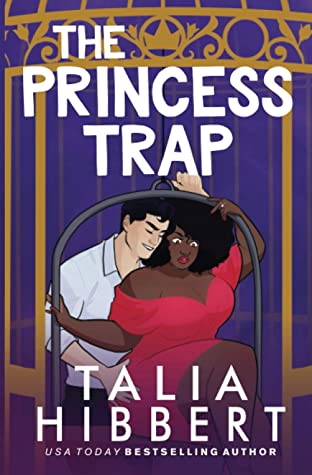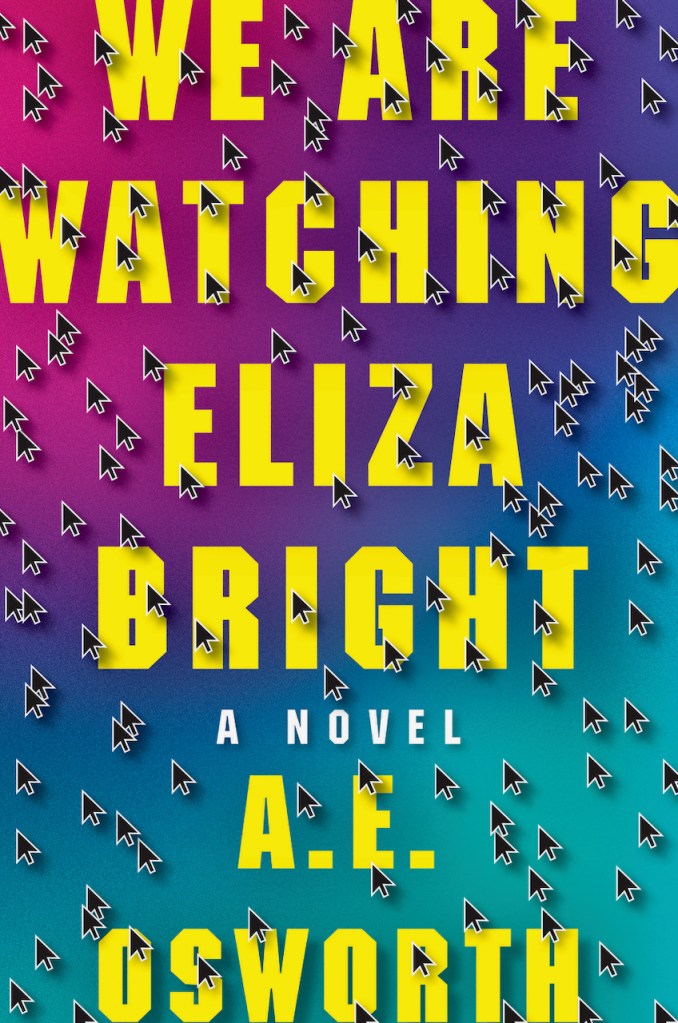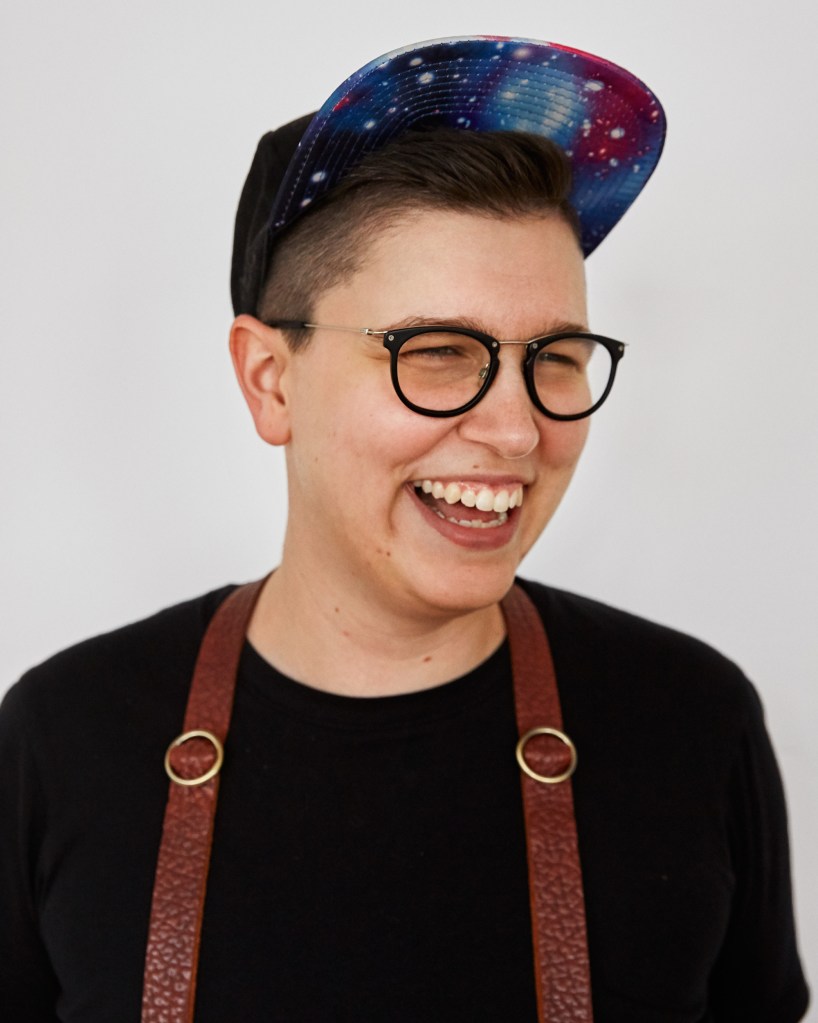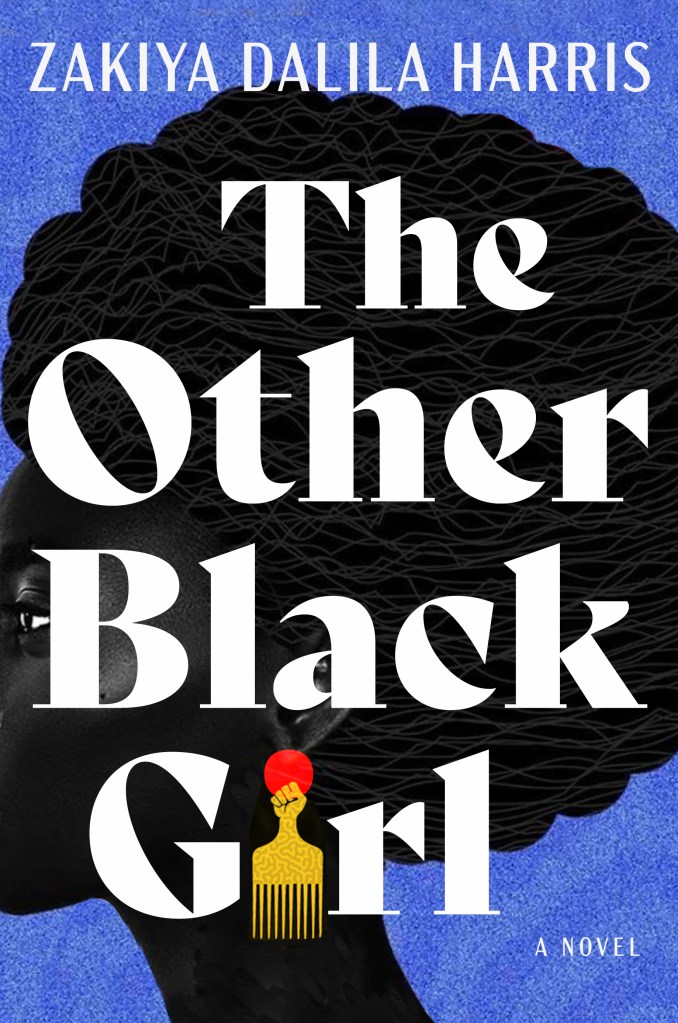In this post, I am super lucky to be able to host A. E. Osworth, author of the breakout adult fiction novel We Are Watching Eliza Bright. This #MeToo era story about harassment in the gaming industry is told multiply and unreliably by users on Reddit, a novel that shatters the concept of form and narration completely. You’ll either love this one or you’ll hate it, but either way, you’ll probably emerge with huge admiration for this author.
But first, I have a guest review from a wonderful friend from my online book community, The Rogue Book Coven, and brilliant reader, Amanda Hamilton. Amanda has graciously penned a review for the highly-anticipated forthcoming title One Last Stop, from Casey McQuiston, whose adult LGBTQ2S+ romcom with crossover appeal, Red, White, and Royal Blue was an overnight sensation in 2019. Does their sapphic sophomore novel meet the high expectations set by the previous novel?
Review: One Last Stop, by Casey McQuiston

By guest contributor Amanda Hamilton
Like so many people, I read and loved Casey McQuiston’s debut bestselling novel, Red, White & Royal Blue last year, so when I had the chance to read an ARC of their upcoming book, One Last Stop, I was over the moon. And I am so happy to report that there is no sophomore slump here.
One Last Stop follows August, newly arrived in New York City, as she settles into her new life, complete with too many roommates and a job at a local diner. It is not the most glamorous life, but for once, it is completely hers. Until she meets Jane, a criminally attractive and charming woman replete with a motorcycle jacket. August and Jane have the ultimate meet-cute on the subway, but Jane doesn’t seem to want to see August outside the station. Because Jane is stuck. Stuck in time, stuck in the station, stuck riding the train over and over. But when the chemistry is this strong and the girl of August’s dreams are right in front of her, what’s a little time loop between friends?
August, Jane and the myriad of characters in One Last Stop’s world are all fully developed, with their own motives, concerns and loves, and it’s a joy to watch them all bloom throughout the course of the novel. Romance novels are often dismissed as predictable and rote, but that is certainly not the case here. Jump into this lovely and surprising with August and Jane – you won’t regret it.
For readers who enjoy One Last Stop, Amanda also recommends The Princess Trap, by Black author Talia Hibbert.

We Are Watching Eliza Bright: Feature Interview with Author A. E. Osworth
In Chapter 10, you give a bit of a gaming history of one of your characters in the book, Lewis. I would love to hear your gaming history! Did you write this book based on a lifelong interest in gaming, are you completely new to the gaming world, or was this just an interesting world for you to explore through fiction
It might come as no surprise that all the characters who have a gaming history (I believe there are three and there were almost more!) just have pieces of my own gaming history. I love video games and board games and table top RPGs (though I do not happen to be very good at most video games—especially if they require a large amount of dexterity-based combat). We were a Nintendo family, and my brother and I spent mornings before school playing the Nintendo 64 (Super Mario! Star Fox!) or, if we’d been dropped off early, Pokemon on our Gameboys. I also played Ultima Online quite a bit in my teen years—until a member of my guild took advantage of my naiveté and slaughtered me in a PVP zone for all my stuff (I had a lot of cool stuff). It wasn’t as much fun after that! Not because I lost all my cool stuff (though that was a bummer) but because it made me feel like my weird little online friendships weren’t meaningful.
Two more gaming-related questions. 1, do you have a favourite game that has kept you busy during the pandemic? 2, what character alignment do you most relate to yourself?
Honestly? Dungeons and Dragons. My household plays a big outdoor game with two other households, all socially distanced and our DM painted a giant battle grid on a bed sheet and hand-stitched cute beanbags to use as “minis.” Right at the beginning of the pandemic, though, it was all Animal Crossing all the time. Could that game’s release have been timed more perfectly? I used to get my avatar all dressed up in pajamas and have them lay in bed, surrounded by aesthetically pleasing digital objects in a world where no one was sick. They closed their eyes and slept soundly while I watched and pretended I felt like that. That sounds a bit sad, now that I say it out. But it is how I spent the early days and it was instrumental.
And that second question—like most folks I talk to, I wish desperately that I were Chaotic Good. When I play said Dungeons and Dragons, that’s usually what I go for. But the reality is that I’m Lawful Good. Which is to say, I am a giant weenie of a rule follower. I don’t make illegal u-turns and I get to airports a full two hours before my flight. I comfort myself only with the knowledge that I am not the worst alignment: Lawful Neutral. Law for the sake of law, rules for the sake of rules. Fuck that alignment!
You use gender neutral pronouns and have written a lot of non-fiction about queerness and technology. Did your experiences of gender and queerness impact the way that you approached writing this book? If so, how?
So when I wrote this book (or at least, the first several drafts of it), I didn’t know I was trans. I could’ve sworn up and down that I was a cis woman, and I wrote a story that centered on one. In that respect, my experience of gender has been with this book throughout. And queerness was always a part of it, too, in the character of Suzanne.
After coming out as trans, I had the opportunity to add and revise the second collective narrator, The Sixsterhood. This queer and trans art commune is inspired by a real group of people and a real place—the former Octagon in San Francisco, as well as other queer communities of which I am a part. That voice is explicitly queer and trans (and there are a lot of in-jokes there that are specifically for my queer and trans folks).

One of the things that is super unique about your book is the narrative style. Rather than having a single POV character, your book is narrated by a group of online fans of a popular MMORPG. For me as a reader, it created a sort of distance between me and the titular character, Eliza Bright. As a literary agent, I would say that this is a super risky choice in a competitive literary market. Why did you make that choice, and what do you hope it adds to your story?
I heard it again and again: cut the narrators, just tell the story. So many people in graduate school were of the opinion that I should do away with the book being narrated by Reddit, and they said the same things you’ve just said. I knew they were wrong because the whole point of the book is the Reddit narrator. The point is the antagonistic collective; the point is the parasocial relationship they have with the group of protagonists; the point is the feeling of being watched. I am so very lucky that I found an agent, and then an editor, whose whole mission was not to simply tell me to cut the narrator, but to ask the right questions and make the right comments to help me make the narrator really, really work. And I think it does; I think they do.
In addition to being a novelist, you also do a lot of teaching (you are so busy!). If an educator was going to teach your book in a high school or college creative writing class, what do you hope students would take away from that experience? Similarly, what do you wish you could tell educators who are going to choose this book to put in a young reader’s hands?
I think what I hope students take away depends on what this is being used to teach. If it’s being taught in the context of writing, I hope students try their own collective narrators. It’s really fun to consider how the collective knows what they know, how they share information with each other, whether or not they all agree, what they all sound like as one. There’s so much delight in working with this point of view, and there are so many good examples that all do it drastically differently (The Virgin Suicides, And Then We Came to the End, We Ride Upon Sticks).
If it’s being used to teach current events or internet culture or any number of other things, I hope students are taught the book beside the headlines that inspired it, because in the end I did make it up. The psychological and emotional underpinning of the book is as true as I could render it, but it’s a work of fiction. The narrators’ voices are accurate, but imagined. A good place to start with that is The New York Times’s Everything Is Gamergate.

Being a marginalized publishing professional can be super challenging once in a while. Your book is with a Big 5 publisher – one of the Hachette imprints – and that’s a really big deal! What has your experience been like working with an agent and an editorial team at a big publishing house? What would you say the most fulfilling part of this process was, and what was the biggest challenge?
I have loved nearly every moment of working with my team at Grand Central. Seema Mahanian, my editor, has made this book the very best version of itself that it could possibly be. I was a little nervous that any editor at a Big Five publisher would look at my weirdo narrators and try to tone them down; Seema helped me turn the dial up on the narrators, and it was actually her idea to add the second collective (my beloved Sixsterhood). When I did two sample pages of the Sixsterhood and there were no periods at the end of the sentences, she said bring it on. I have felt not only artistically free, but artistically encouraged to find my very strangest ideas and let them play.
The biggest challenge for me is something that I truly think would be a problem no matter if I was working with a Big Five or not, and that’s the feeling of at-sea-ness that comes from We Are Watching Eliza Bright being my very first foray into publishing a book. The process is really opaque to me—as my book’s launch date approaches, I don’t know what I should be doing or what’s working or what’s not. My agent, Christopher Hermelin, is truly amazing though. And he’s been able to contextualize and guide and clarify for me. That I remain confused at times is a shortcoming of mine and not anyone else’s.
Last, but not least, when I’m covering a non-Black author, I ask them to recommend a book by a Black author to go alongside their post. Would you mind sharing a rec with me?
Oh oh oh! One of my year-mates from my MFA program at The New School (we graduated in 2016!) is publishing something I’m REALLY excited about. Zakiya Dalila Harris’s book The Other Black Girl is coming out in June and I am AMPED.

PS, if you enjoyed this post, please consider leaving me a tip! It only takes a minute, and it allows me to keep creating content just like this, buying food for my pets, and pursuing my career as a literary agent!
